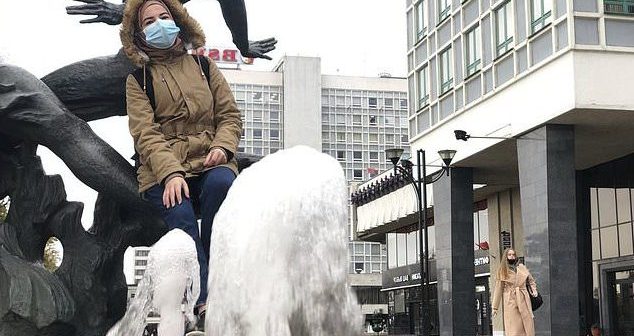GIESSEN, Germany: She had already walked for 60 hours through the wet, dark forests of Poland, trying to make her way to Germany, when the 29-year-old Syrian Kurd twisted her knee.
It wasn’t the first setback in Bushra’s journey.
Earlier, her road companion and best friend had fainted in a panic attack as Polish border guards chased them. They hid in ditches and behind trees as her friend tried to regain her breath, but it was no good. They turned themselves in and the guards dumped them back across the border into Belarus.
They quickly returned, bedraggled and wet, on the same trail. After twisting her knee, Bushra persevered. For two more days, she dragged her right foot behind her through the rain and freezing temperatures of the forests. Finally, they reached a Polish village where a car took them across the border into Germany — for a life she hopes will be free.
“I put up with the unbearable pain. Running away from something is sometimes the easiest thing,” Bushra said in the central German town of Giessen, where she applied for asylum as a refugee. “There is no future for us in Syria.”
Bushra, who asked that her last name be withheld for her own safety, is the face of the new Syrian migrant. More Syrians are leaving home, even though the?10-year-old civil war has wound down and?conflict?lines?have been frozen for years.
They are fleeing not from the war’s horrors, which drove hundreds of thousands to Europe in the massive wave of 2015, but from the misery of the war’s aftermath. They have lost hope in a future at home amid abject poverty, ?rampant corruption and wrecked infrastructure, as well as continued hostilities, government repression and revenge attacks by multiple armed groups. – AP
- Latest
- Trending





